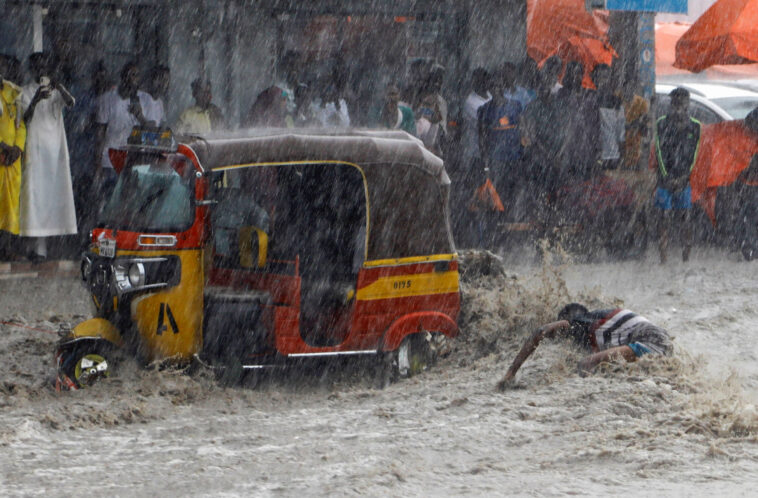In October 2023, Kampala’s neighborhoods once again drowned under torrential rains. Streets turned to rivers, homes collapsed, and over 5,000 families were displaced, according to the Uganda Red Cross. In the informal settlement of Bwaise, resident Mariam Nalwoga recounts wading through waist-deep water to salvage her belongings. “We beg the government every year, but they leave us alone in this hell,” she says. Yet, amid the despair, a quiet revolution is brewing: communities are spearheading grassroots solutions to combat floods, filling gaps left by systemic neglect.
The Problem: Why Kampala Floods
Kampala’s flooding stems from clogged drainage systems, unchecked urbanization, and poor waste management. Over 60% of the city’s drainage channels are blocked by plastic waste, according to Kampala Capital City Authority (KCCA) reports. Rapid construction in wetlands—which naturally absorb rainwater—has exacerbated the crisis. While the government pledges action, progress is slow. A 2022 audit revealed only 15% of allocated flood mitigation funds were utilized, leaving communities to fend for themselves.
Community-Led Solutions in Action
1. Drainage Maintenance Brigades
In Bwaise, the Katwe Environmental Youth Activists (KEYA) mobilize weekly clean-up drives. Armed with shovels and wheelbarrows, volunteers remove plastic and silt from drains. “If we wait for the government, we’ll drown,” says KEYA founder Robert Ssentongo. Since 2021, their efforts have reduced flood depths in Katwe by 40%, per community records.
2. Upcycled Flood Barriers
In Namuwongo, residents repurpose old tires and sandbags to create makeshift barriers. Jane Nakato, a local tailor, led a campaign to line vulnerable homes with these barriers. “Last year, my shop stayed dry for the first time,” she says. The initiative, supported by NGO ACTogether Uganda, has protected 200 households.
3. Urban Farming as Defense
The Green Shoots Collective trains residents to build raised vegetable gardens using recycled materials. These gardens absorb excess water and provide income. “My garden acts like a sponge during rains,” says farmer Denis Mubiru. A 2023 study by Makerere University found such green spaces reduced waterlogging by 30% in pilot areas.
Evidence of Impact
Data from community-led projects shows tangible results:
– KEYA’s clean-ups have decreased flood duration in Katwe from 5 days to 2 after heavy rains.
– Sandbag barriers in Namuwongo reduced property damage by 50% in 2023.
– Urban farming groups report a 25% increase in household income, diverting waste from drains.
Challenges and Limitations
Despite progress, challenges persist:
– Scalability: Most initiatives are hyper-local. “We lack funds to expand beyond our neighborhood,” admits Ssentongo.
– Government Disconnect: While KCCA praises community efforts, coordination remains weak. Drainage projects often ignore community input, leading to mismatched solutions.
– Climate Pressure: Heavier rains due to climate change threaten to overwhelm small-scale interventions.
The Way Forward
Experts argue lasting change requires collaboration. “Communities can’t replace infrastructure,” says Dr. Lydia Nantongo, an urban planner. She advocates for integrating grassroots ideas into city plans, like Kenya’s Nairobi River Commission. Meanwhile, NGOs push for “resilience funds” managed jointly by locals and officials.
Conclusion
As Kampala’s rains grow fiercer, its people grow resourceful. Though systemic change is essential, community ingenuity offers a lifeline. “We’ve stopped waiting,” says Nalwoga, now a KEYA volunteer. “If the government won’t act, we’ll save ourselves.” Their resolve underscores a universal truth: even in neglect, resilience can bloom…
This post was created with our nice and easy submission form. Create your post!





hi
Good evening Tommy
How are you?
LOL, if you say so. But I still maintain that you’ve fed our minds about community based solutions regarding floods…
Much appreciated
Waiting on you now
Can’t wait to be schooled by you as always…
Much appreciated as always dearest Hugs…
for the first Solutions Journalism Article DMT.
Thank you for schooling us
The schooling was for yesterday
Today we just trying our best.
Do appreciate for the kind remarks…